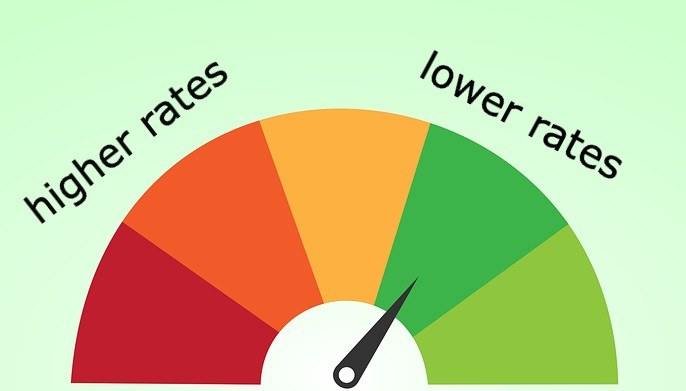
How Much Money Do You Need for a $300k House? Let's Break it Down
Posted on May 03, 2022
Over the past several years, the average cost of buying a home has skyrocketed in most areas of the...

Posted on May 03, 2022
For many homeowners, a mortgage is the most significant financial transaction of their lives. Not only is it the largest by dollar amount, but a home loan - and the equity it allows homeowners to build - can have generational life-changing impact.
According to The National Association of Realtors (NAR), 87% of home purchases are currently financed. For most people, though, getting a mortgage is a rare event that may only happen a few times in their lifetime - or just once. So not surprisingly, it’s easy to make mistakes.
What sort of mortgage mistakes should you avoid making so that you successfully qualify for your home loan? Here’s what you need to know.
According to the Consumer Financial Protection Bureau, nearly half of homebuyers don’t shop around to mortgage lenders when they buy a home - potentially leaving money on the table in terms of a lower interest rate. Their research indicates that borrowers can get rates that vary by more than half a percent if they shop around. That can translate into thousands of dollars off their mortgage payments every year!
Part of the issue is that buyers are often strapped for time. When there are 10 homes to look at, documents to sign, and sellers to haggle with - all while home buyers are busy with their everyday lives - there isn’t always time to shop around to multiple lenders for a quote. The other issue is that many buyers simply don’t realize that shopping around can make that much of a difference - or that it’s even an option in the first place.
There are ways around this, though. Houwzer mortgage advisors do the shopping around for clients, getting them the best possible rates from a variety of lenders to suit their unique needs. This way, homebuyers can focus on the important thing: finding their home.
Talk to a Houwzer mortgage advisor
It might seem like a good idea to pay off existing debt before getting pre-approved for a mortgage - after all, that will help your debt-to-income ratio and thus allow you more wiggle room in your budget. However, it’s worth keeping in mind that debt isn’t considered a bad thing for credit scores - in fact, some debt is good, because every month that you pay off your debt it counts positively toward your credit score. So when you eliminate a debt you’ve been paying off on time every month, it can - temporarily - decrease your credit score.
"Paying off certain debts might not be wise as it may make a negligible difference in qualifying and drain your necessary funds needed for closing," says mortgage advisor Julian Minatel. "It's always better to check with the mortgage advisor first before paying off any debts."
Most lenders want to see two years of consistent work history when you apply for a home loan (if you’re self-employed, this preference still applies). If you quit your job right before you apply for a home loan, your lender is going to be concerned about your ability to pay for the mortgage when you have no income coming in.
If you’ve quit one job and you’re starting another, that’s more promising than no job, but you still might run into some trouble. If you’re switching from a salary-based pay to a commission-based pay, for example, loan officers might be concerned about your ability to net the same or more income when it’s no longer guaranteed. Similarly, if you switch from a W-2 job to 1099, even if you have money coming in an underwriter will struggle to properly evaluate your income until you file your taxes.
Many first-time homebuyers are shocked to realize that the down payment is only a portion of the money they’ll need to fork over to buy a home: closing costs will need to be paid in order to receive your new home’s keys, and they vary from 3-7% of the home’s purchase price, depending on a range of factors.
Unlike a down payment - which doesn’t need to be 20% and can be as low as 3% in some instances - closing costs can’t be rolled into the cost of the loan. So you’ll need money on hand to pay for things like the appraisal, home inspection, and more.
If you’re lucky enough to have family or friends contributing to your home purchase, it might be tempting to simply bank the check and then go to the lender. However, accepting money without going through the correct channels can potentially threaten your loan qualification.
Why does the lender care where you get your money? There are a few reasons for this. The lender wants to make sure the money comes from an acceptable source - not the real estate agent, for example, the home seller, or a side job (because all income needs to be documented). The lender also wants to make sure that the money you’re receiving isn’t actually a loan you need to repay (since that would affect your debt-to-income ratio).
"Undocumented funds may not be used for qualifying so this may create issues if these funds are relied on in qualifying," explains Minatel. "All funds in the transaction must be sourced appropriately."
If you have a bunch of money under the mattress you’ve been meaning to deposit, get it in your account at least 60 days before applying for a loan. At that point, the money is considered “seasoned” and most lenders won’t care about it.
Your credit score will be used by the lender to determine whether you can successfully pay for a home loan and your mortgage rate - and a better credit score equals a lower mortgage rate. It’s a good idea to review your credit report several weeks before you plan on applying for a home loan. This will give you time to uncover any issues and potentially resolve them - whether that’s mistakes, fraudulent activity, or simply improving your own borrowing habits in order to get your score up.
You can receive your credit report once per year for free and without penalty to your credit score from each of the three major credit reporting companies (Equifax, Experian, and TransUnion).

If you don’t have sufficient credit history to buy a car, what do you do? In many cases, younger people will have their loan co-signed by a parent, older sibling, etc.
If you’ve co-signed a loan, you know this means that you agree to pay off the debt if for some reason the borrower stops paying. Not only is this a financial risk for you, but it also adds to the debt that a mortgage advisor considers when they’re evaluating you for a home loan. Lenders may include it in your debt-to-income ratio, which means you could qualify for borrowing less house. It can also count against you if the borrower pays late, since this affects your credit score.
Before applying for a mortgage, you’ll want to get a mortgage pre-approval first. A mortgage pre-approval letter tells you how much money a lender is willing to let you borrow for a home. To determine this, a loan officer will review your:
It’s important to do this step before you submit an offer on a home so that you’re not adding a contingency to your offer. Otherwise, you’ll be competing against other buyers who can show the seller that they’re actually qualified to buy the home - which you might not be.
"The most common mistake that I see people make when people are trying to buy a home is not getting pre-approved early on in the process before they start looking at homes," notes Minatel.
According to a recent poll of millennial homebuyers by Bankrate, almost two-thirds of buyers had regrets about the home they bought - and most of this remorse is due to the unanticipated costs. Over 20% weren’t prepared for maintenance costs, while another 13% felt their mortgage payment was too high. And once you’re in your home, it’s not like an apartment where you can move to a smaller, more affordable place when your lease is up: that home is yours until you sell it.
It’s a bad idea to shop at the very top of your budget because you can end up “house poor,” which is when a large portion of your monthly income is going toward housing. While you’re technically building your equity, you might not have enough money left over for groceries, savings, entertainment, etc.
Although you can usually get approved to spend up to 36% of your income on a home, the conventional rule is that homebuyers should really spend about 28% of their gross monthly income on their mortgage payment - that includes insurance, taxes, etc. in addition to the principal and interest.
"[If you shop at the top], your budget may put you in a vulnerable position if interest rates increase, and thus you might not qualify for the home loan altogether," advises Minatel.
On top of that, homeowners should assume that they will need to spend 1% of their home's value on maintenance every year (so for a $500,000 home, that’s $5,000). You might not hit that amount every year, while in other years you might find yourself paying $10,000 for a new roof - so you'll thank yourself if you plan ahead to set some money aside.
Many homebuyers have a knee-jerk reaction against private mortgage insurance (PMI), aiming instead to put down 20%. Sometimes PMI helps rather than hinders, though, and it's unwise to think of it as "wasted money."
Consider the example of saving for a $300,000 home. If you don’t have enough money saved to put down 20%, you might be penny wise and pound foolish if you avoid a $100 monthly PMI payment for a year. If home prices rise 10% that year, you’ve saved $1,200 for the sake of adding $30,000 to your loan - and during that time, paying for your landlord’s mortgage rather than your own.
Always have a conversation with your mortgage advisor about the best path for you - sometimes the best solution won’t be the most intuitive one.
Loan points are another tool homebuyers should realize is in their arsenal. Mortgage points allow a lender to lower the interest rate of the loan - a mortgage point is equal to about .25% of your rate, and the cost of each point is equal to 1% of your total loan amount. In other words, for a $500,000 loan you’d need to pay $5,000 for a mortgage point - and you’d be able to go from 4% to 3.75%.
Whether or not a mortgage point is worth it really depends on how long you plan to stay in your home - and if you’re likely to refinance. If you received a great rate to begin with and you plan on living in your home for 30 years, loan points can save you thousands of dollars over the lifetime of the loan. If you plan on only living in your home for 7 years, though, you won’t realize most of the gains.
Caution is key when it comes to planning ahead for your home loan. There are situations where it might still make sense to do some of these things - your sister might really need a co-signed for her car, for example, or you might get a great new job opportunity you can't turn down.
The key to having a successful mortgage experience no matter what is keeping your mortgage advisor in the loop. They'll be able to give you the best advice on how to move forward in the mortgage process.
Subscribe to our newsletter to get essential real estate insights.

Posted on May 03, 2022
Over the past several years, the average cost of buying a home has skyrocketed in most areas of the...

Posted on May 03, 2022

Posted on May 03, 2022
For homebuyers who can’t afford to buy their home in cash, a mortgage is a necessity. Yet despite a...